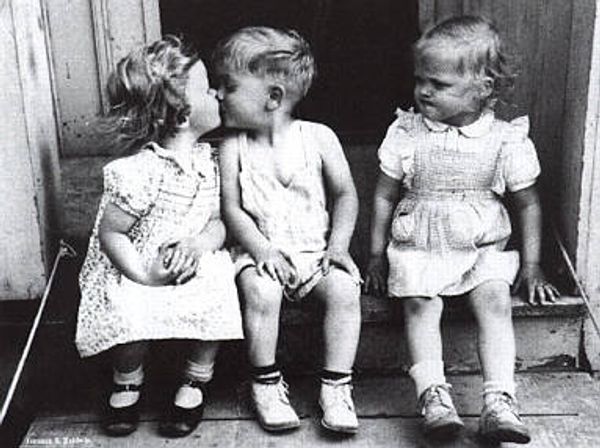Local government, or the decentralized powers given to your jurisdiction, statistically have a lower turnout and less media interest than a national election would. If we want to see change, we must begin from the ground-up, or rather, at the bottom. (Drake fades in.)
Let's discuss the issues we have with representation in modern America:

We form public opinion through frames of reference, such as political ideology, party identification (which leads to selective perception on a specific issue), and group orientation.
It has become increasingly difficult to pinpoint a citizen's identity. Subsequently, when your beliefs are consistent, you’re going to be able to identify yourself more to a political party yet there is a gray area for the classification of those who are mixed. For example, economically conservative + morally liberal = libertarian.
As America becomes more diverse, the party lines begin to blur even further. As of 2012, 20 percent of Americans are religiously unaffiliated. There are restraints within the Liberal-Conservative spectrum, where moderates fall somewhere in between liberalism and conservatism on the spectrum of political ideologies.
Approximately 35 percent of Americans identified as moderates in 2010, and these voters tend to vote either Republican, Democrat, or neither. Liberals believe in progressive social policies and more government provision of positive rights, such as healthcare or education. Liberals tend to vote Democrat, and in 2010, roughly 25 percent of Americans identified as liberals.Conservatives prefer to maintain the status quo and believe in socially conservative policies, as well as limited government intervention in the economy.This is a prominent ideology in US politics, as roughly 40 percent of Americans self-identify as conservatives.
So, once you've defined what you'll put on the ballot, what are you really voting for? Besides the candidates, what are the values you're endorsing? Should we be able to force the people to consume things they might not really want if a policy is tied to a candidate?
Besides these inquiries, there has been an ongoing debate as to whether or not civil liberties are absolute. The rights guaranteed to us by the Bill of Rights are surfaced into conversation about whether or not some could be deemed as outdated. If you’re exercising your right but it infringes on other peoples’ rights, you have to be able to put restrictions on how much you can enjoy that right.
This situation could escalate, and on some level it has as people have more access to the information they desire.
It's factual that the bigger the pool size, the smaller the margin of error. This is a huge statement when it comes to local politics, where results can be misrepresentative if only a small margin of citizens are participating. As well, public opinion is usually determined by polls, with a recognized margin of error.
What kind of autonomy do you have outside of the polls? Are you inclined to contact an elected official? Join a political party?
Should elected leaders pay attention to the results of public opinion polls? That question is still being debated. What is certain is that with the proliferation of polling by various media outlets and independent firms in recent decades, lawmakers are more aware than ever of what America thinks.
Political knowledge is often used to measure the quality of a citizen. For you to have an opinion, do you have to have information on the topic, or does it not matter? What should citizens know, what roles of cues should be adhered to?
If you don’t have enough political knowledge, using heuristics would mean to use someone else's perspective, such as someone you value or who has achieved a higher education.
Political values are non-negotiable since they’re values that define who you are. Attitude consistency is if you come across information that doesn’t agree with what you believe in.
Motivated reasoning is whereby you bring your beliefs, so you need to bend/manipulate info into what you already believe. News channels can enforce what you already believe. You aren’t looking to be challenged, you’re looking for people who believe what you already believe. With the augment of cable news, you can decide what kind of news you want to watch. Or, for millennials, you can see what happens on your news feed based off people you follow, or you can look at Twitter moments. Seeking media that reinforces your position without offering a challenge is a simple way to fall into bias.
Because of the sporadic voting patterns in the pie chart below, it isn't a surprise that Unconventional Participation is more popular than ever. It challenges the conventional framework of established institutions and proposes new cultural norms.
There are two types of voting; prospective and retrospective. Whether you vote on a candidate's prior record or their promises, it can greatly affect voter turnout.
Americans don't vote because we are rational. We choose the option that gives us the maximum utility. The Rational Voting Calculus, or when the benefit outweighs the cost, is the determinant as to whether or not we feel that our vote matters. In actuality, the smaller the election, the more your vote is heard.
Your civil duty, whether it's personal patriotism or social pressure, is represented by the sticker received post-voting.
Often time voters will vote based entirely on a single issue or policy they wish to support. These voters are called “single issue” voters. When people identify very strongly with one party, they tend to vote for that party consistently. This can lead to straight-ticket voting.
"Bad officials are elected by good citizens who do not vote."
--George Jean Nathan, drama critic
Nathan's quote rings true in today's society. I encourage us to enable our voice in this democracy by seeking information on local elections rather than waiting for an outlet to feed us. We all care about the well-being of our environment, and you don't have to have a particular interest in politics to have an opinion.























